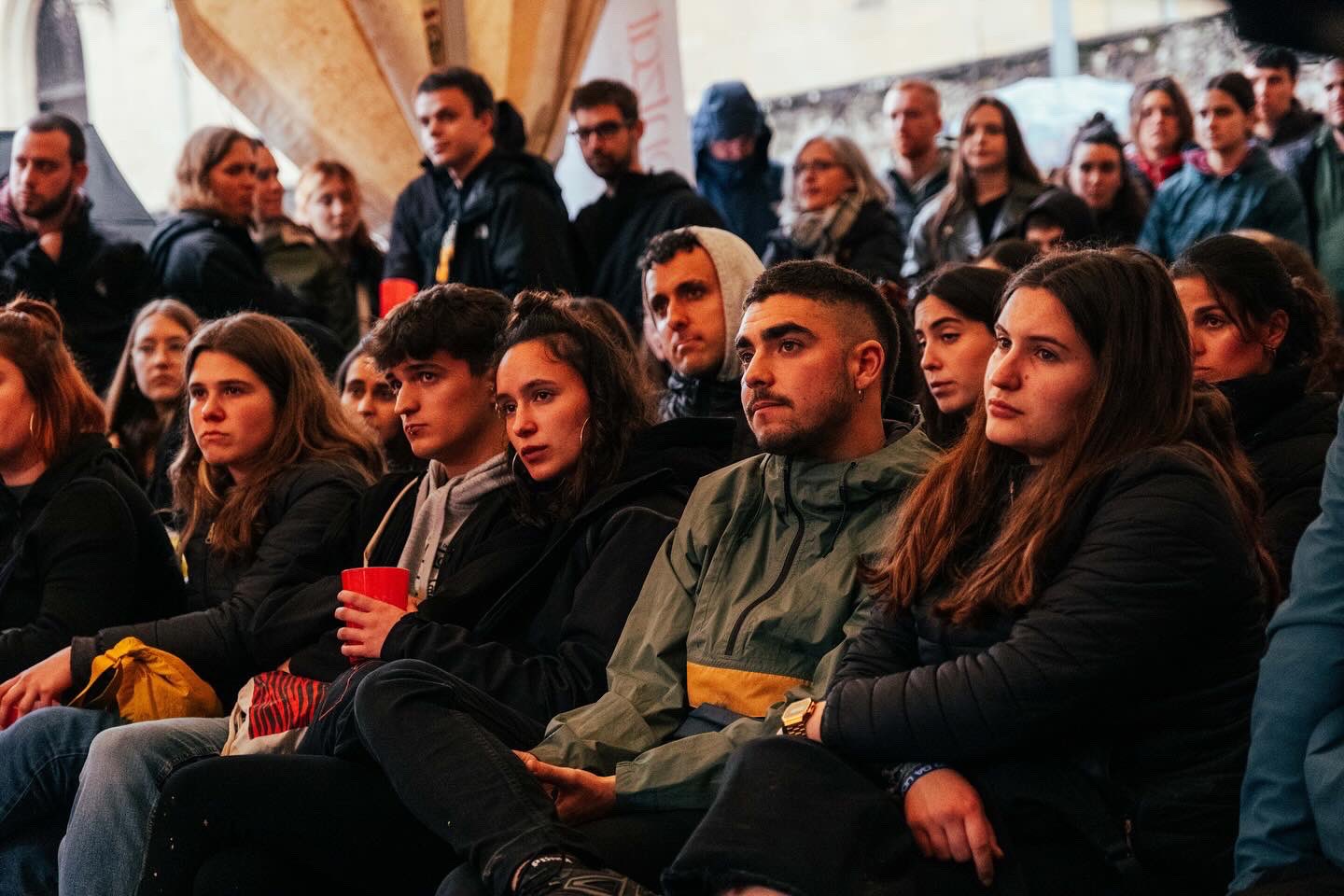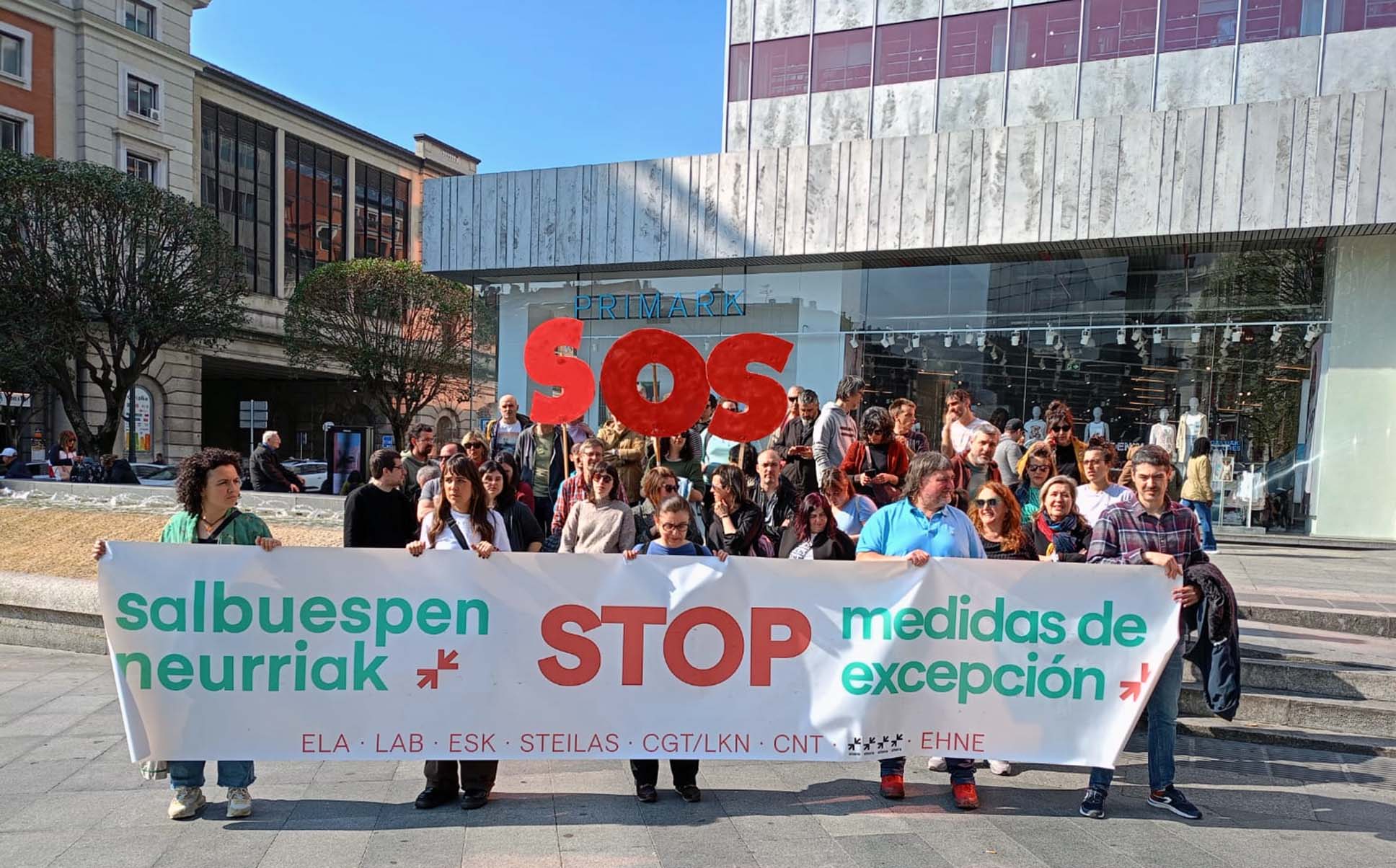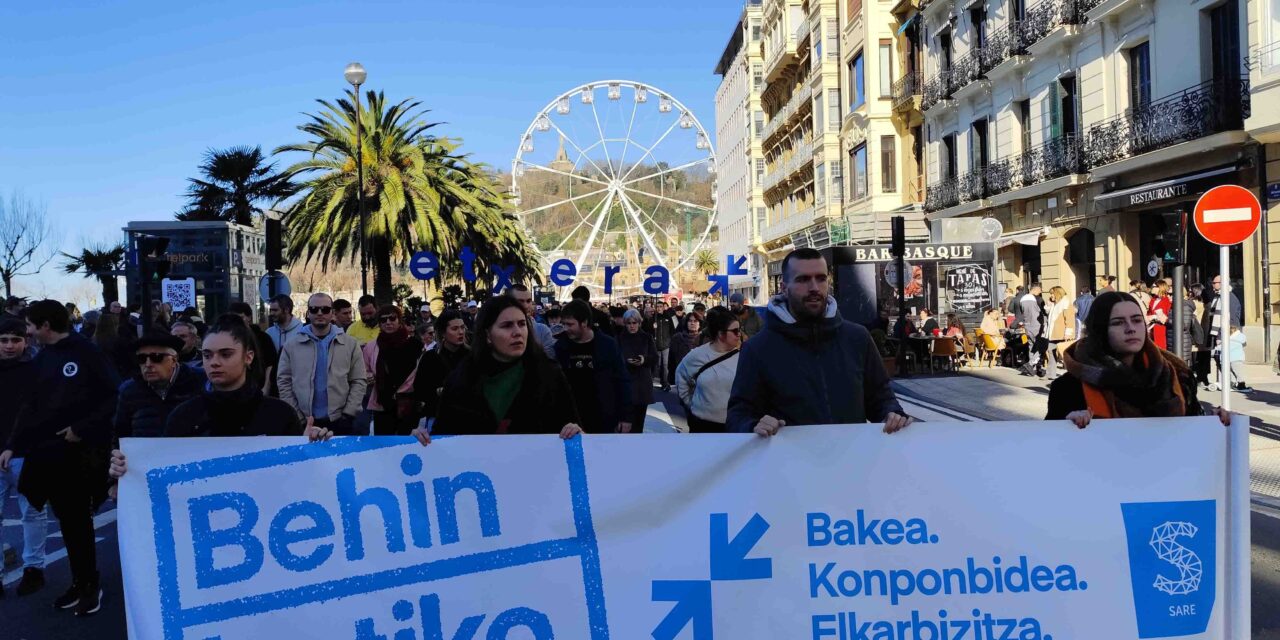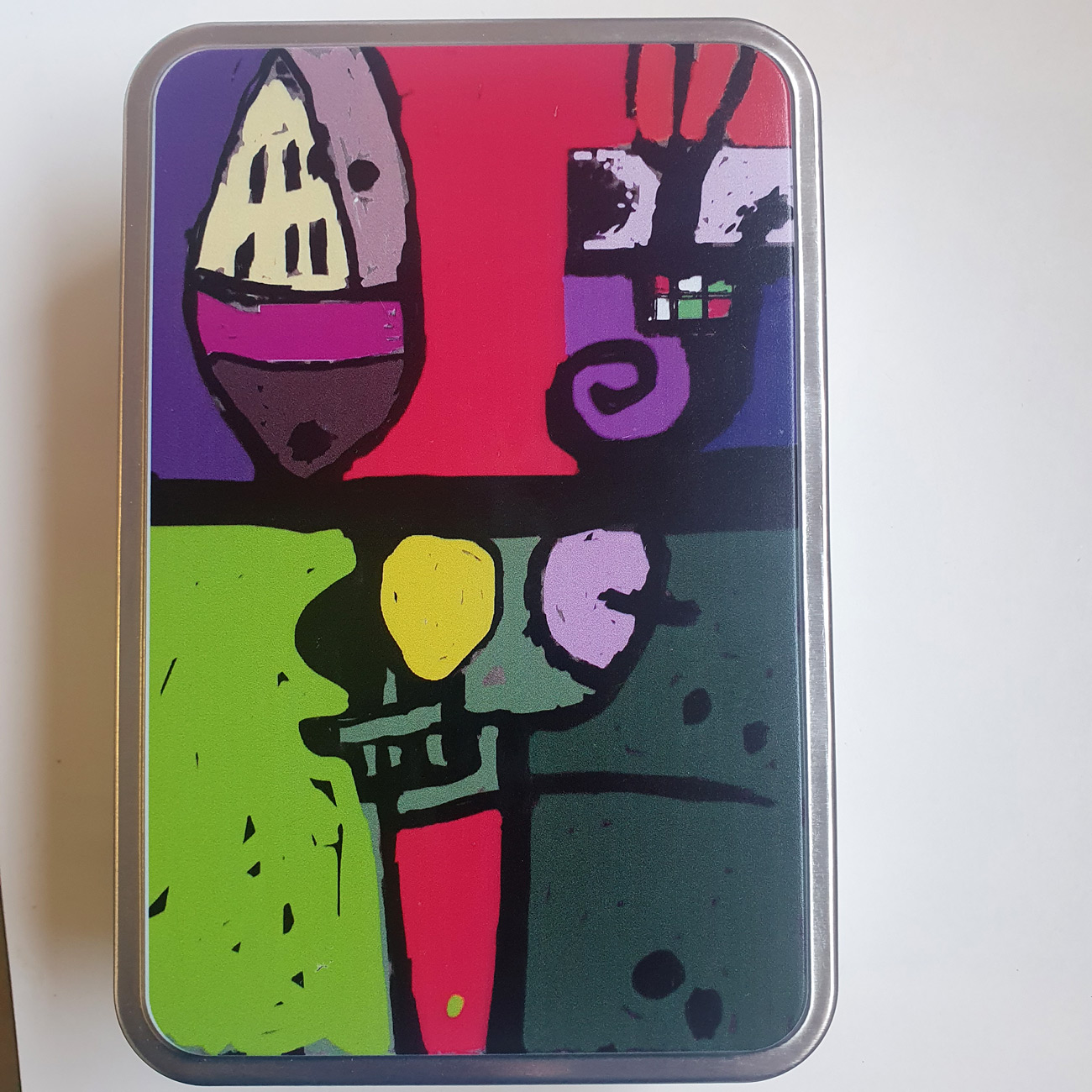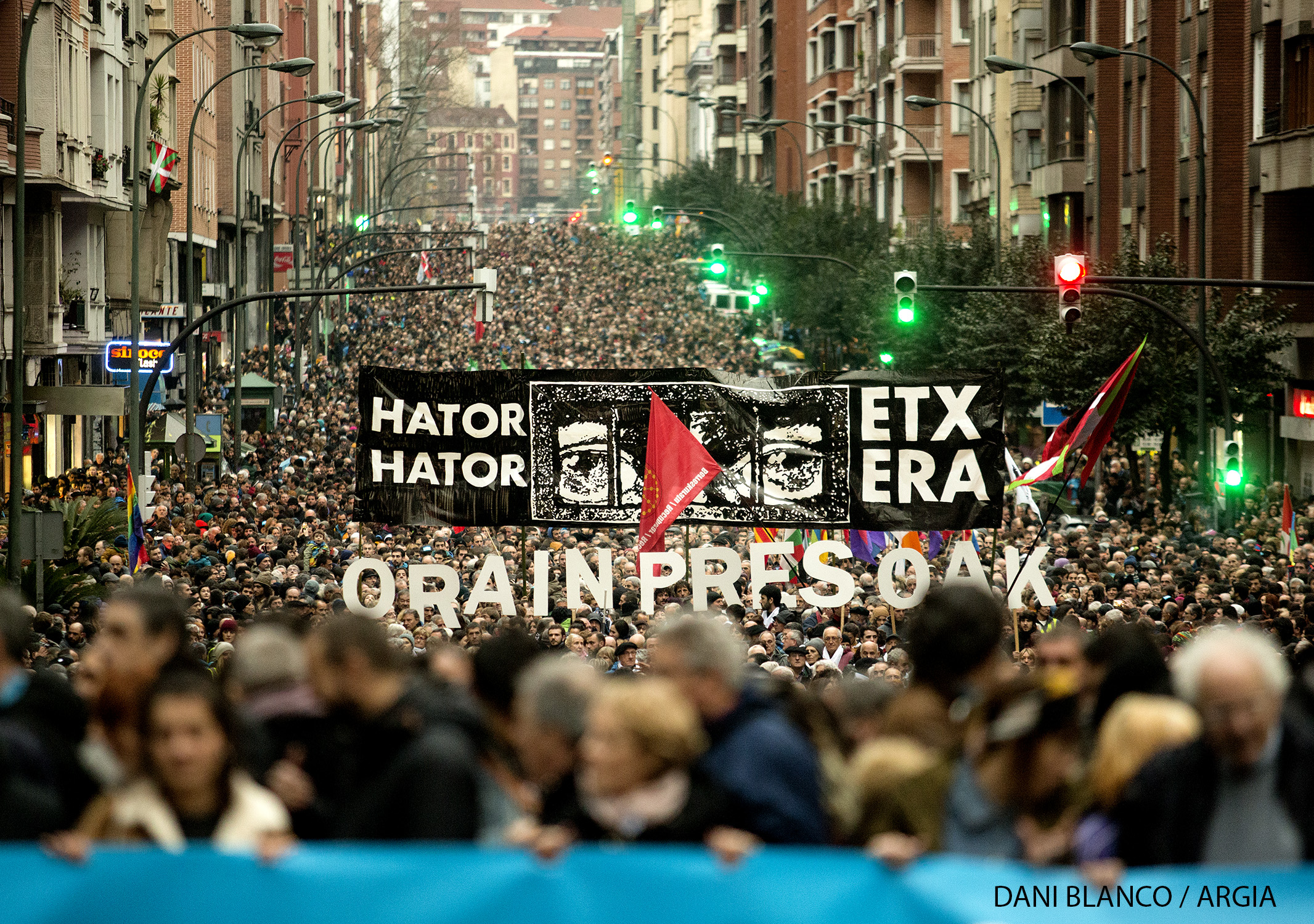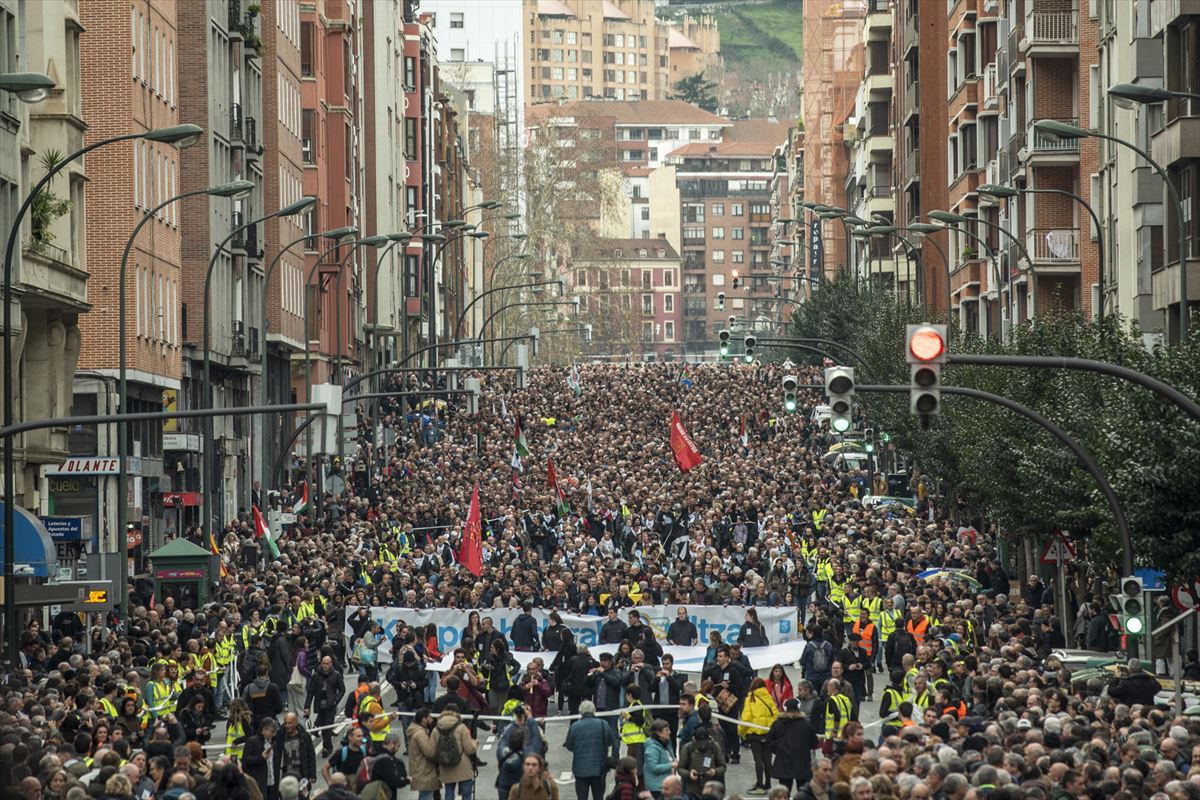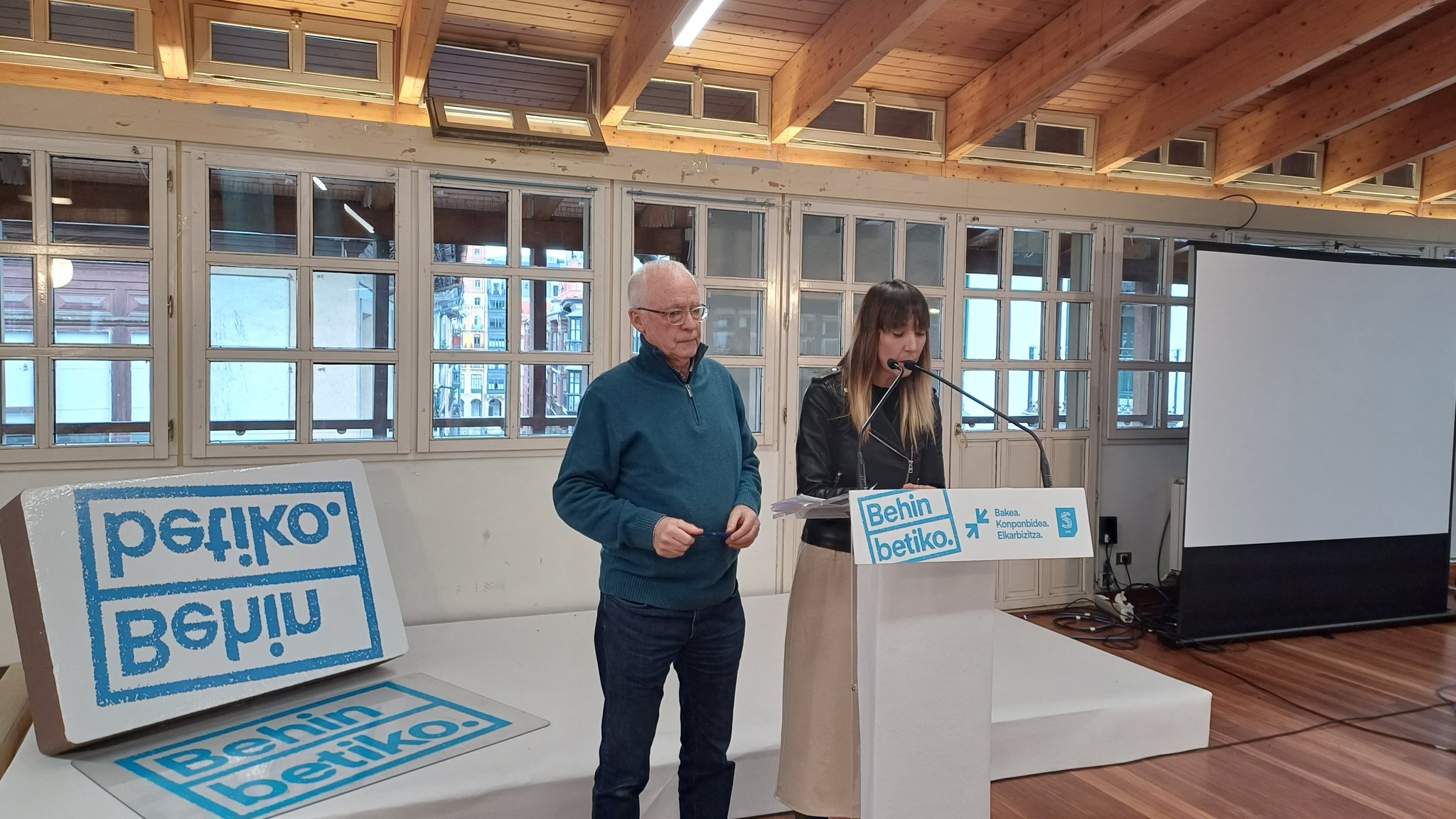"Prisoners have to go home and in a dignified way"
- “There are those who fight for a day and are good. There are those who fight for a year and are better. But there are those who fight their whole lives, they are essential.” There's Theresa Toda in them.
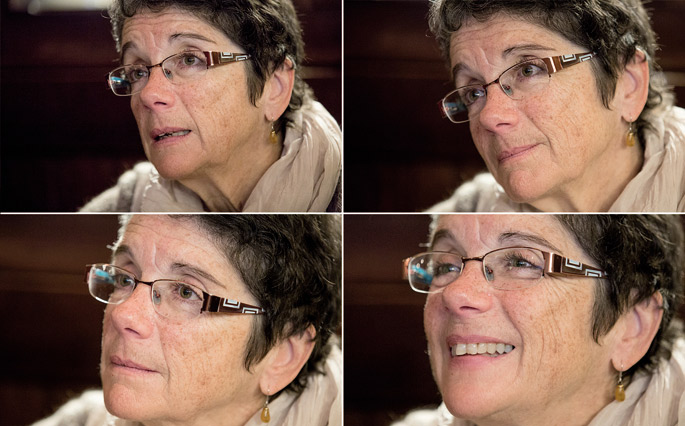
You have been a journalist, we have put you in an unusual playing field, rather than asking questions, rather than answering you.
I've always liked the conversation genre. Especially when it's done wanting, don't do a job as soon as possible to get out of the episode. Today I am very pessimistic as far as our profession is concerned. Young journalists have precarious working conditions and, on the other hand, most of the media are subject to large companies and economic powers. But in our time, even in Franco's time, things weren't easy, and we were fighting. It makes me sad. We must oppose this.
Research to undertake journalism!
There's no investigative journalism. Now it's said that research is journalism, but it's a leak that comes from the National High Court or a court, not an investigation! The institutions, for their part, use only the press release. The press release is holy, especially when it comes to government. No one doubts it, and that is not the way forward.
The news is recorded in press releases and press conferences.
It is up to me to make press conferences many times, as I am one of the spokesmen for the Network. Yes, journalists gather, but they don't ask. How are you not going to go to the press conference and ask questions? That's what the press conferences are for, to ask. Something else is happening in the media and in alternative networks. I turn to them many times. If not, they are sharper, but they also make mistakes and mistakes.
It was the first of December when you were arrested. I was on November 27 when you were released. We are at that time.
Yes, yes… The day I was released was quite special, because I had to leave on the 28th, but on the 26th, in the evening, the jailer came to the cell and said: “Tomorrow to the street!” “No, no tomorrow, no, after the day of departure!” I wanted to greet my peers, I had already thought about it, but they didn't let me. I had talked to the family, telling me that they would go and look for me, but I was kicked out of jail when nobody expected it. Nobody expected me. On the same day 27 we make a phone call home, we call a solidarity taxi driver in Córdoba and we sort it out. It was the last bite.
Egin journalist Iñaki Iriondo also referred to that day. He said you had been left in the street on the eve of the day that they were waiting for you. They had found it to be traces.
Yes, yes… It was very special. As special as the day we were arrested. They stopped us as we discussed how to deal with the sentence. To prison and nothing else. That was the end of the matter. Anyway, the arrest is there, and it will always be there, but I remember the day I left free, so to speak, I have a day to meet with my friends.
You've been taken six years.
No, no -- they don't take it away, they can't take it away. They take you out of ordinary life, they put you in jail, and that's where your life goes, you're still living. They're not lost years. No recovery is lost. There are the experiences, there are the people you know in jail. Jail is a hard experience, because you lose freedom, and with freedom, and with dispersion, much more. Always guarded, monitored all day. They listen to conversations, they control the visas from the sun to the moon, the guards give part of you every day… and then you have to create and care for your spaces. Time is yours. First degree prisoners spend 20 hours in the cell, and those hours are no one but you, you have to do them, and that's where your work begins.
What work?
Personal, I work deeply on myself. You start using your skills differently than you did before. You probably didn't know that you had ease in doing crafts. Recycling is also a world inside jail. You have very few things at your fingertips and, therefore, you have to learn how to reuse them. I've learned a lot about that. Of course, feeling part of a collective is not bad, the relationship established with colleagues is also nice, working these relationships, developing them, taking care of them. You learn how to care for people in a different way in jail, both your relatives and your social prisoners. There is also the situation of women in prison.
It was invisible.
There you see it. You see the impact of male violence, you see what drug dependence is doing to women. Women are secondary in society and more secondary in prison. I always remember the situation of women from South America. Many of them arrive with a small load of drugs, they get caught at the airport here or there, and they get incredible sentences. I know that some will be driving, but many are poor, a thousand or two thousand euros – for them all the fortune – who dream to win, and end up in prison. It's very hard.
I read it in the hallway of Dueñas prison (Zamora, Spain): "25. Article 2.- Custodial sentences and security measures are aimed at re-education and social reintegration, and cannot be forced labour...” Will it be possible?
In Córdoba, the Respect module was ours. Specific for the social reintegration of prisoners. But the measures employed there were those of a nuns' pensioner or a barracks. Very strict measures that do not promote social reintegration. Jails are empty warehouses, places where people come in, reject and forget. Prison has no other purpose than to punish. Look, soon there are elections in Spain. There are the usual parties and the new parties: Has anyone said anything about prison policy? Is anyone going to say anything? And it's terrible: the harsh measures, the harsh situation, the suicides of the people -- and nobody questions the prison system. It is estimated that there are 70,000 prisoners in prison in Spain. This is what is best demonstrated by the use of prisons. In the case of political prisoners, the situation is much worse.
Have we forgotten the prisoners?
I believe that in Euskal Herria there is more sensitivity towards prisoners than in Spain. It is because we have political prisoners, and Salhaketa is always working for social prisoners. But in the Spanish State, prisoners do not matter. I would not say that we have forgotten them, people know that we have political prisoners, know the situation of family members, gather the news of this association and of it, but they do not have enough consciousness to get involved in the work. The toughest evidence of the conflict, however, has disappeared and the problem seems to be over. The situation of prisoners, for its part, has become a subject in which politicians accuse each other of something that does not help society.
Despite the great demonstration that takes place every year in Bilbao at Christmas…
Yes, but not everything can be a demonstration in Bilbao. That is why we are working the day after the La Sa demonstration in Bilbao. However, society has changed and also the form of accession: it is easier for people to join punctual commitments than to commit to permanent daily actions. The problem with all the associations at present is this. As far as we are concerned, rather than mobilizing people, we want to raise awareness of the fact that suffering persists. Each one has and will have his own suffering, but there is no new suffering, except that which generates the situation of the prisoners: they follow the travels of the relatives, follow the situation of the prisoners, the situation of the sick prisoners, the situation of the prisoners who needed freedom, the case on the computation of sentences… The situation is black, we are going back, the living conditions are getting worse and worse: The Spanish State is playing with prisoners and relatives.
What do we have to do to fight that game?
Share, disseminate and activate several people around this topic. That's not just the Abertzale left, it's the Basque society. There cannot be so many political prisoners in a country that does not have three million. It's a sign of something, of something. It needs a solution. We have to bring the prisoners home. To the prisons of the Basque Country, and home. We can call it an amnesty or not, but, as a result of a process, prisoners have to return home in a dignified manner.
“The spirit of the prisoner always returns to prison,” a poem by Joseba Sarrionandia.
My friends tell me that those of us who have gone through jail have a touch that the one who hasn't gone through there can't understand. It's possible. Jail inevitably changes you. We have another view of life. You have other values. I've also heard Saluri [Jabier Salutregi, director of Egin], after you leave jail, you love people more, you value more, you have more ease to contact people you don't know.
You spoke of Salutregi, which was still free.
Karlos Trenor and Joxean Etxeberria were included in our summary.
It never goes free. The newspaper had been buried forever and the path of many workers.
What did they say in 2009? It didn't have to be closed because there was no reason for it. But Egin is dead. This is a punitive operation, as is the one carried out against the young people of Segi. They're acquitted. We will see what happens with the Segura raid, or with the operation against the Herrira movement. They're punitive operations, like Egin's. There was no reason to close the newspaper, but it was uncomfortable, because it revealed a lot of things, we said what no one said. Egin was locked up in the framework of a political operation against the Abertzale left, delegitimized forever. Before, in 1997, the National Bureau of Herri Batasuna was tried. They felt capable of anything. Those words of Aznar. “They thought we wouldn’t dare!” Or those 50 grams of amosal by Juan Mari Atutxa, which was supposed to explode every day in the Basque Country, indicating Egin… It was planned. Once closed, the macrosumary 18/98 was formed, in which the case of Egin was diluted.
1950, Porto Alegre (Brasil)
Espainiako diplomatiko zuen aita. Aitaren lanak agindurik, Txilen, AEBetan eta Ingalaterran bizi izan zen, harik eta bere-bere bideari ekin zion arte. Madrilen egin zituen Kazetaritza ikasketak, eta hantxe hasi zen Eginen berriemaile 1984an. Handik hiru urtera egunkari hartako langile zen eta mahaian zen Alcalako atentatua egin zutenean. Euskal Herrian dugu harrezkero, euskaraz. Madrilen ekin zion ikasteari, eta Eginen ari zela hasi zen AEKn. Kartzelan ere ez dio barkatu lantegi horri. Euskal presoen gizarte mugimendu Sareko bozeramaile da. Egineko zuzendariorde izanak aurten bertan hartu du lan erretreta.
1993an egin zen Alcalako atentatuaren epaiketa: Angel Duce Espainiako polizia jo zuten hiltzaile, nahiz eta beste zenbait lagun ere zigortu zituzten. Duce espetxe baimenak lortzen hasi zen 1995ean, eta handik bi urtera hil egin zen, moto istripuan. “Hil egin zuten, hizketan hasita zegoen”, Teresa Todak noizbait esana.
“Saihestu egingo dira giza eskubideen, ordenamendu juridikoaren eta espetxeetako tratamendu psikosozialaren aurkako balioak eta jarrerak babestea, justifikatzea eta goratzea ekar dezaketen adierazpenak”, dio, besteak beste, agiriak. Azaroan Eusko Jaurlaritzako... [+]
Asteazken eguerdian berreskuratu du askatasuna astigartarrak, zigorra osorik beteta. Espainiako Auzitegi Nazionalak otsailean inputatu zuen ETAren zuzendaritzako ustezko beste lau kiderekin batera, Gregorio Ordoñezen hilketa leporatuta.
Martxoaren 13an lau urte bete dira Fran Balda arbizuarra istripuz hil zela. Preso, iheslari eta deportatuen etxeratzearen alde egin zuen lan, eta haren bost kidek idatzi diote gutun hau.
Frantziako Poliziak 2002an atxilotu zuen zumarragarra, eta 30 urteko zigorra betetzen ari da. Sare Herritarrak mobilizazioa deitu du datorren ostiralerako, Urretxuko Potros Plazan.
Iratxeren Bidasoaldeko Lagunak ekimenak deituta, dozenaka lagun kalera atera ziren atzo Iratxe Sorzabal preso politiko irundarraren absoluzioa eskatzeko eta behingoz etxera ekartzeko, torturak salatzeaz gain.
Sare Herritarrak antolatuta, pasa den urtarrilaren 11n Bilboko kaleak bete zituen manifestazio jendetsuaren ondoren, berriz sortu da eztabaida, euskal presoei salbuespen legeriarik aplikatzen ote zaion. Gure iritzia azaltzen saiatuko gara.
Espetxe politikan aldaketa nabarmena... [+]
Just as we experienced the flourishing of the Basque Country with the help of the artists, so that this time, taking advantage of their impulses, we continue to make our way together giving the necessary support to the Basque political prisoners, exiles and deportees
The... [+]
Jar gaitezen 2025erako proposamen politiko gisa, Espainiako Auzitegi Kolonialaren (AN) epai guztiak berrikusten hasteko eta makila bakoitzak bere belari eusteko.
Unionismoarekin lerrokatutako alderdi, sindikatu eta gizarte-erakunde gehienek, eta ez bakarrik horrela... [+]
Next Saturday, 11 January, the Sare citizens' network called for a new demonstration in Bilbao in defence of the rights of Basque prisoners. This is a unique opportunity to move forward on the path of coexistence in our people, after decades of violent confrontation and, even... [+]











